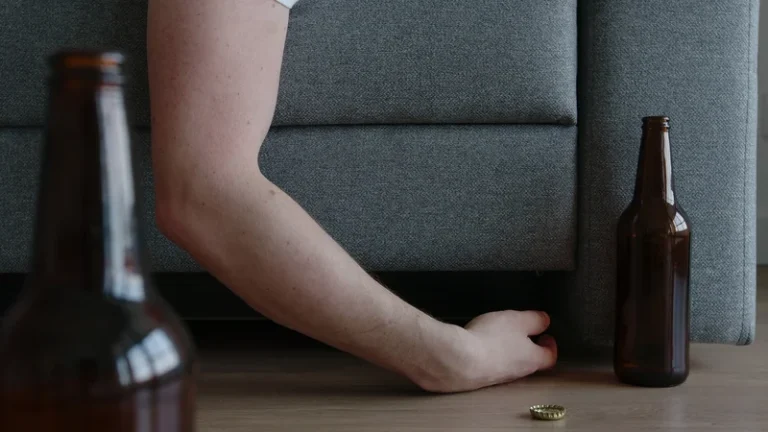Addiction: What It Is, Causes, Symptoms, Types & Treatment

It involves family and friends and sometimes co-workers, clergy or others who care about the person struggling with addiction. Renowned scholar William White, the author of NAATP’s history, believes the U.S. has tried to arrest and incarcerate its way out of the SUD crisis. Twenty-three and a half million U.S. adults 18 and over — 10 percent of the country’s population — are in recovery from drug or alcohol addictions. Only 11.2 percent of individuals in this group have received specialized treatment from a qualified addiction treatment facility. This statistic indicates that most U.S. adults with a substance use disorder do not get the help they need. Healthcare providers and the medical community now call substance addiction substance use disorder.
How Is Drug Addiction Defined?
If you or someone you care about may have an addiction, talk to your provider right away. This can create an unhealthy drive to seek more pleasure from the substance or activity and less from healthier activities. Letting your friends, family, and those closest to you know about your treatment plan can help you keep on track and avoid triggers. Charity Action on Addiction, 1 in 3 people in the world have an addiction of some kind.
Submit a Nomination for the 2025 Addiction Treatment Leadership Awards
Drug addiction, or substance use disorder, is a mental health condition that can have lifelong impacts. Though it’s a treatable illness, substance use disorder recovery often involves a lifelong cycle of relapse (recurrence of use), withdrawal, and abstinence. Scientific research has identified how brain circuitry and brain chemistry are affected by long-term use of alcohol and other addictive substances. Drug =https://ecosoberhouse.com/ use increases the release of a powerful chemical called dopamine. Over time, if dopamine is routinely in abundance because of substance use, the brain attempts to balance things out by producing less dopamine.
- The type of treatment a doctor recommends depends on the severity and stage of the addiction.
- This knowledge can be used to develop better care plans with the potential to increase patient compliance and make treatment more effective.
- In a related article, Dr. Wand describes how stress and the genetics of the stress response influence risk for dependence.
- The frontal lobe allows a person to delay feelings of reward or gratification.
- Dependence involves a progressive, complex process that takes place in an area of the brain known as the “reward center”—the same place that regulates and reinforces natural rewards vital to our existence, such as food and sex.
Registration Open for NAATP National 2025 in Seattle

Though a person taking drugs may initially make a willful decision to engage in the behavior, we now know substance use leads to brain changes over time. These brain changes interfere with an addicted individual’s ability to deny themselves and resist the overwhelming compulsion to continue with drug use. Those who embrace the view of addiction as behaviorally-focused may also mistakenly believe that individuals misusing alcohol and drugs could, at any time, “make a decision” to quit based upon good intentions and force of will. In fact, this is one of the most widespread myths about addiction or SUD. Since 2011, the public understanding and acceptance of addiction as a chronic brain disease and the possibility of remission and recovery have increased. At the same time, there is growing acknowledgment of the roles of prevention and harm reduction in the spectrum of addiction and recovery.

Resistance to change is recognized as an expected part of the process. Many people who live with addiction also have at least one other type of mental illness 2. You might hear professionals call this dual diagnosis or co-occurring disorders. Treatment for co-occurring disorders is most effective when it addresses each of the conditions rather than just focusing on one or the other. Fortunately, many of the treatments for addiction also address other mental illnesses, and vice versa. But you also don’t have to be addicted for it to cause problems in your life!
- However, any activity or habit that becomes all-consuming and negatively impacts your daily functioning can cause significant mental, social and physical health issues, as well as financial issues in some cases.
- A significant part of how addiction develops is through changes in your brain chemistry.
- It’s crucial to seek help as soon as you develop signs of addiction.
- For people who are concerned about their use of alcohol, drugs, or other behaviors, like gambling or self-harm.

Supportive friends, family members and healthcare providers play an Drug rehabilitation essential role in effective treatment as well. As with most other chronic diseases, such as diabetes, asthma, or heart disease, treatment for drug addiction generally isn’t a cure. People who are recovering from an addiction will be at risk for relapse for years and possibly for their whole lives. Research shows that combining addiction treatment medicines with behavioral therapy ensures the best chance of success for most patients. Treatment approaches tailored to each patient’s drug use patterns and any co-occurring medical, mental, and social problems can lead to continued recovery. Scientists have also identified a variety of social, psychological, genetic and other factors that make some people more vulnerable than others to developing drug addiction.

Symptoms and Causes

A person with an addiction uses a substance, or engages in a behavior, for which the rewarding effects provide a compelling incentive to repeat the activity, despite detrimental consequences. Addiction may involve the use of substances such as alcohol, inhalants, opioids, cocaine, and nicotine, or behaviors such as gambling. The DSM-5 doesn’t currently include other behavioral addictions addiction vs dependence due to a lack of research on them.
